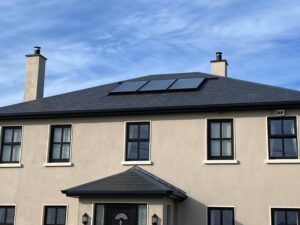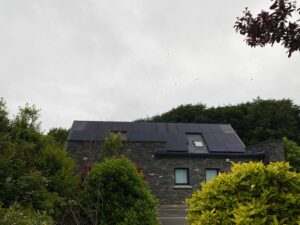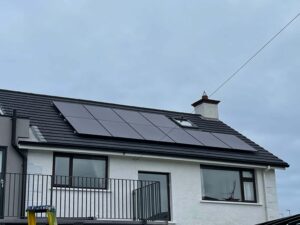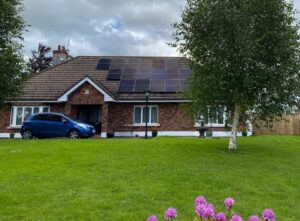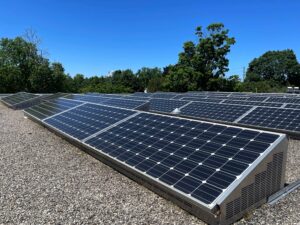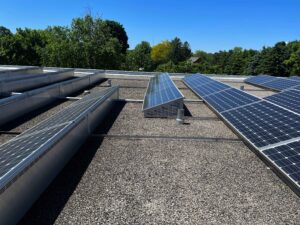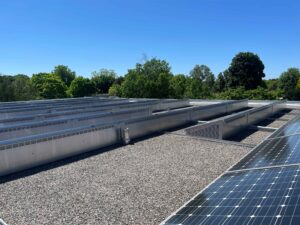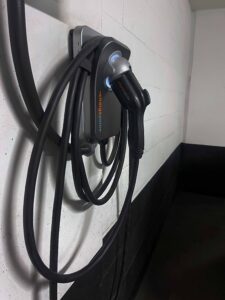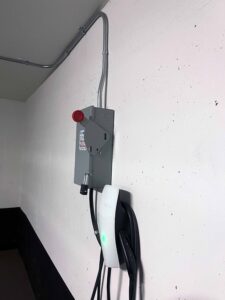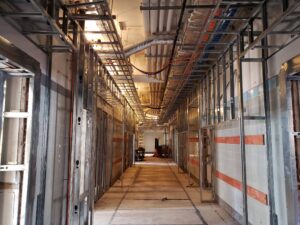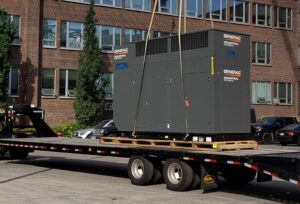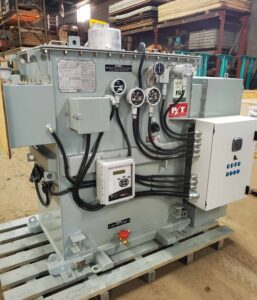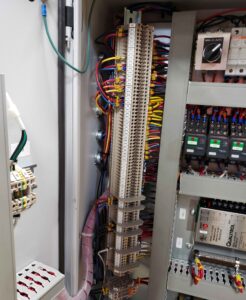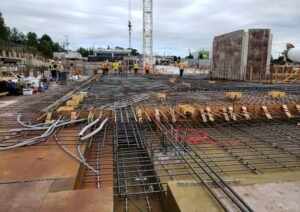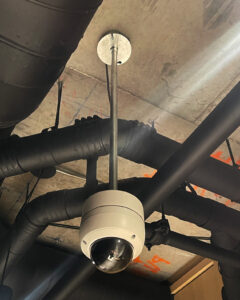Solar Panel Installation
Solar energy is a clean, renewable energy source that is becoming increasingly popular as people look for ways to reduce their carbon footprint and save money on their energy bills. Solar panels are a great way to harness the sun’s power and generate electricity.
INTOCHARGE is committed to providing customers with the highest quality Solar panel installation services. We have a team of experienced professionals who can design and install a solar system that is perfect for your home or business.
Why Choose Solar?
There are many benefits to choosing solar energy, including:
Environmental benefits
Solar energy is a clean, renewable energy source that does not produce any greenhouse gases or air pollution. This makes it a great way to help reduce your carbon footprint and fight climate change.
Financial benefits
Solar energy can save you money on your energy bills. The cost of solar panels has come down significantly in recent years.
Energy independence
Solar energy allows you to generate your electricity, which means you are no longer dependent on the grid. This can give you peace of mind during power outages and help you save money on your energy bills.
Government Incentives and Rebates
The federal government offers several tax incentives and rebates to encourage people to go solar. These incentives can help you offset the cost of your solar system and make it more affordable.
Popular Incentives
The Federal Solar Investment Tax Credit (ITC)
The ITC allows you to claim a tax credit of up to 30% of the cost of your solar system.
The Renewable Energy Tax Credit (RTC)
The RTC allows you to claim a tax credit of up to 30% of the cost of your renewable energy system, including solar panels, wind turbines, and geothermal systems.
State and local incentives
Many states and local governments also offer tax incentives and rebates to encourage people to go solar.
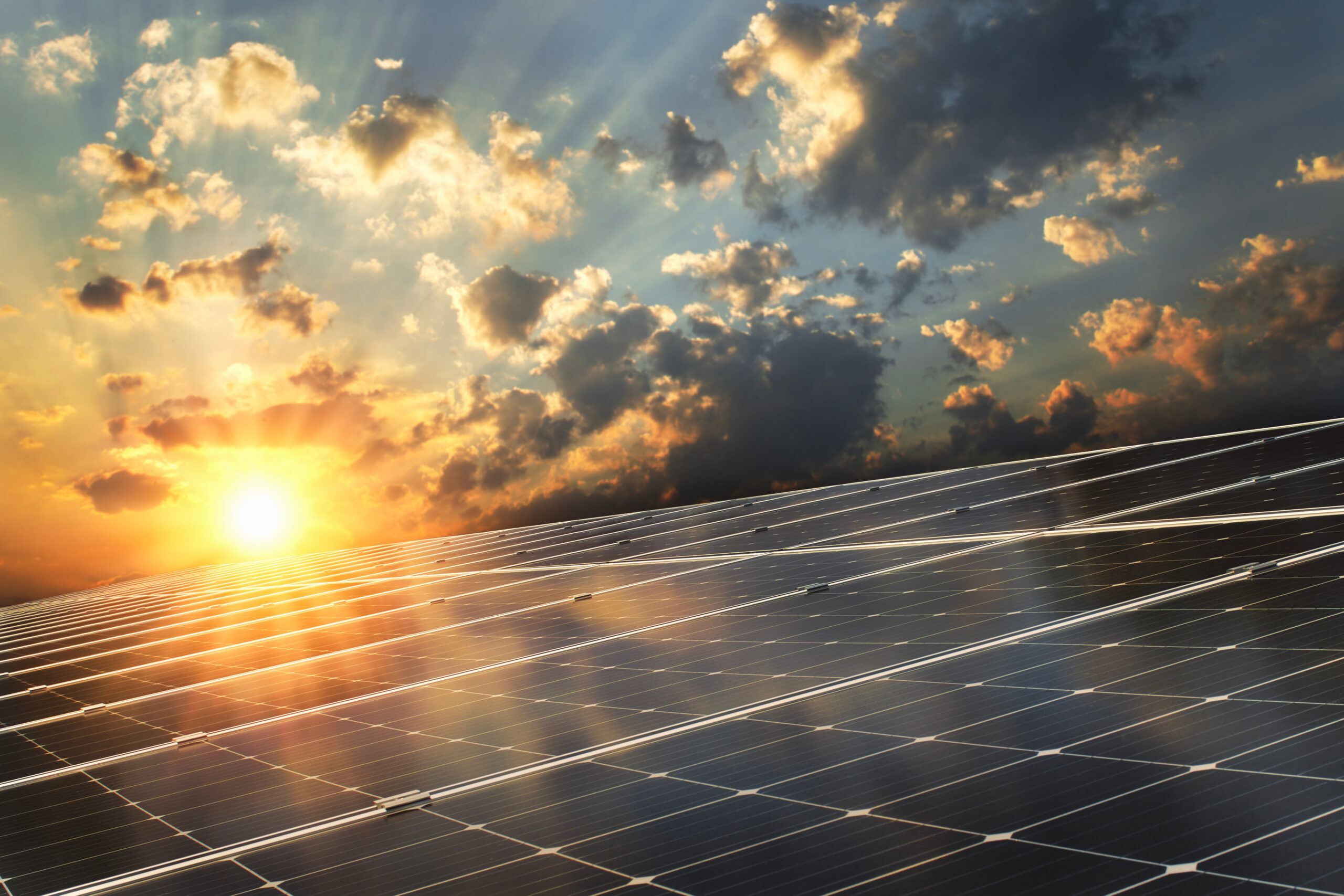
What is Solar Panel?
A solar panel is a device that converts sunlight into electricity. Solar panels are made up of photovoltaic (PV) cells, which are typically made from semiconductor materials like silicon. When sunlight hits a PV cell, it creates an electric current. This electric current is then used to power your home or business.
There are two main types of solar panels:
- Monocrystalline solar panels: Monocrystalline solar panels are made from a single, high-quality silicon crystal. They are the most efficient type of solar panel available, but they are also the most expensive.
- Polycrystalline solar panels: Polycrystalline solar panels are made from multiple silicon crystals that are melted together. They are less efficient than monocrystalline solar panels, but they are also less expensive.
How Does Solar Panel Installation Work?
Solar installation is a multi-step process that requires careful planning and execution. Here’s a general overview of the steps involved:
1. Initial Consultation
A solar energy consultant will assess your property’s suitability for solar panels, considering factors like roof orientation, shading, and local climate. They will discuss your energy consumption habits and determine the optimal system size to meet your needs.
2. System Design
Based on the assessment, a customized solar panel system design will be created. This includes determining the number and type of solar panels, the inverter size, and the necessary mounting hardware.
The system design will also account for any local building codes and regulations.
3. Permit Acquisition
The installer will obtain the necessary permits from local authorities to ensure compliance with building codes and safety standards.
4. Roof Preparation
The roof should be inspected to ensure it can support the weight of the solar panels. Any necessary repairs or reinforcements must be made.
5. Mounting Installation
Mounting hardware, such as racks or rails, will be installed on the roof to securely hold the solar panels.
6. Solar panel installation
Solar panels should carefully be placed on the mounting system, ensuring optimal sun exposure.
7. Wiring and Electrical Connections
Solar panels will be connected to inverters, which convert direct current (DC) electricity from the panels into alternating current (AC) electricity compatible with your home’s electrical system.
The inverter will then be connected to your home’s electrical panel.
8. System Testing and Commissioning
The entire solar panel system will be thoroughly tested to ensure it is functioning correctly. Once testing is complete, the system will be officially commissioned and ready to generate electricity.
Components of a Solar Panel System
A typical solar panel system consists of the following key components:
- Solar Panels: These are the heart of the system, converting sunlight into direct current (DC) electricity.
- Inverter: This device converts the DC electricity from the solar panels into alternating current (AC) electricity, which can be used by your home appliances.
- Mounting System: This holds the solar panels securely in place, typically on your roof.
- Wiring and Cables: These connect the solar panels to the inverter and your home’s electrical panel.
- Meter: This monitors the amount of electricity generated by your solar panel system.
Benefits of Solar Panel Installation
Solar panel installation has many benefits including:
Reduce Energy Bills
By generating your electricity, you can significantly reduce your reliance on the traditional grid, leading to lower monthly utility bills. In some cases, well-designed solar systems can generate enough electricity to offset your entire home’s energy consumption, making it a net-zero energy home.
Increase Home Value
Solar panel installations can increase the value of your home. Potential buyers often view solar-powered homes as more desirable and eco-friendly.
Environmental Benefits
Solar power is a clean, renewable energy source that produces zero greenhouse gas emissions, helping to mitigate climate change. By investing in solar energy, you contribute to a more sustainable and environmentally friendly future.
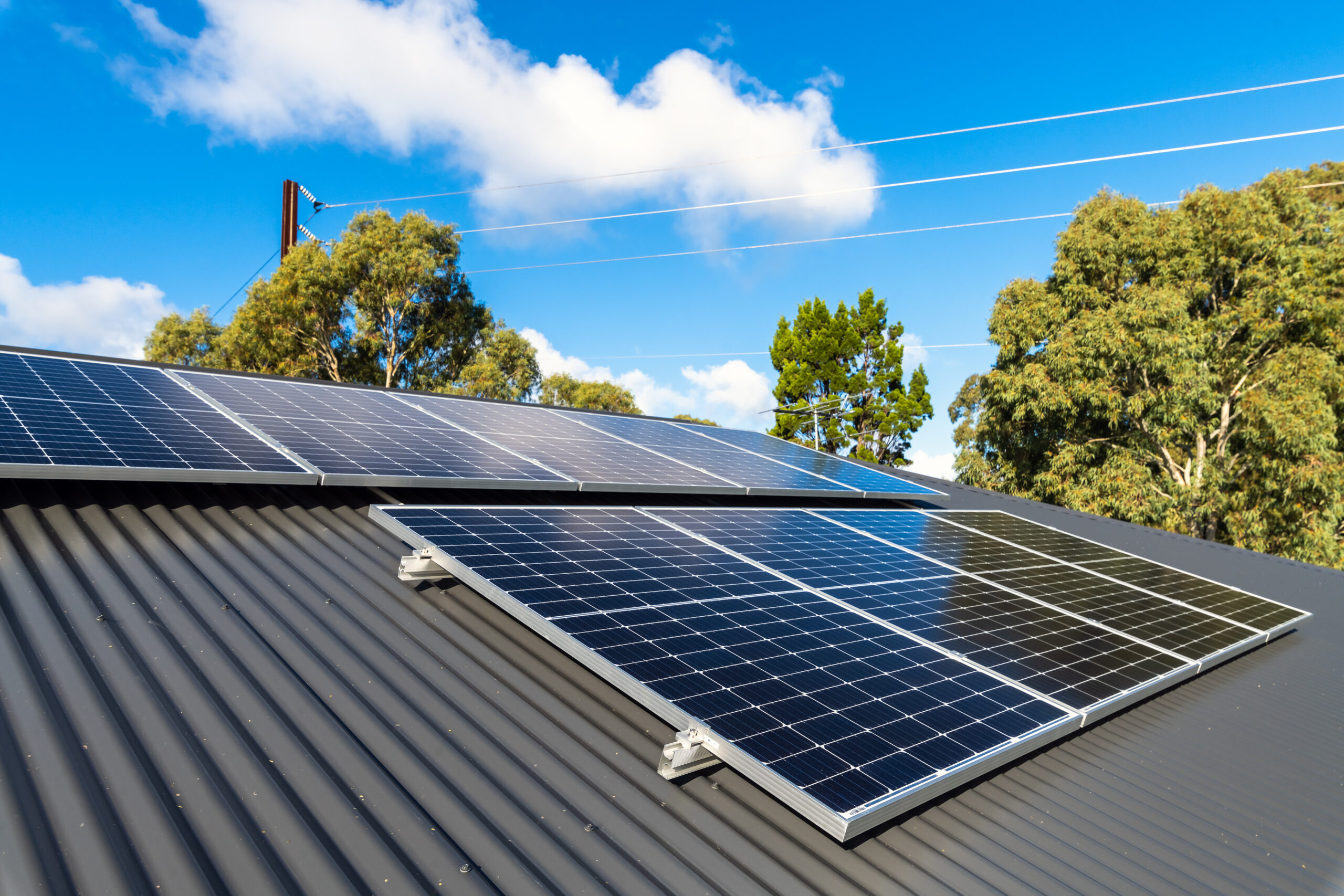
Solar Panels for Your Home
Residential solar panel systems are designed to meet the specific energy needs of homeowners. They can be installed on rooftops, ground-mounted, or even on carports.
The size of solar panels for your home will depend on several factors, including:
- Your Home’s Energy Usage: The more energy you consume, the larger the solar system you’ll need.
- Roof Orientation and Shading: The angle and direction of your roof, as well as any shading from trees or buildings, will influence the system’s performance.
- Local Climate: The amount of sunlight your area receives will determine the system’s potential output.
A qualified solar installer will assess these factors and recommend the optimal system size. Proper installation is crucial to ensure the system’s efficiency and longevity.
Solar Panels for Businesses
Commercial solar systems are designed to meet the unique energy needs of businesses, from small offices to large industrial facilities. Solar panels for businesses offer a variety of benefits, including:
- Reduced Energy Costs: By generating clean, renewable green energy, businesses can significantly reduce their electricity bills.
- Increased Property Value: Solar panels can enhance the value of commercial properties, making them more attractive to potential buyers or tenants.
- Positive Public Image: Embracing solar energy can improve a company’s reputation and attract environmentally conscious customers.
- Energy Efficiency: Solar energy provides a reliable and predictable source of power, protecting businesses from volatile energy prices.
ROI and Savings
The return on investment (ROI) of a commercial solar system can vary depending on factors such as energy consumption, local solar incentives, and financing options. However, many businesses experience significant savings over the long term.
Key factors influencing ROI include:
- Energy Consumption: Businesses with high energy consumption typically see higher savings from solar.
- Solar Incentives: Government incentives can significantly reduce the upfront cost of a solar system.
- Financing Options: Leasing or power purchase agreements (PPAs) can make solar more accessible to businesses with limited upfront capital.
- System Efficiency: High-efficiency solar panels and inverters can maximize energy production.
- Maintenance Costs: Regular maintenance is essential to ensure optimal performance and longevity.
Solar Panel Installation Costs
Several factors influence the cost of Solar panel installation:
1. System Size
Larger systems naturally cost more due to the increased number of panels and components.
2. Panel Efficiency
Higher-efficiency panels can be more expensive but may offer a better long-term return on investment.
3. Roofing Complexity
Complex roof configurations, such as multiple slopes or special materials, can increase installation costs.
4. Labor Costs
The cost of labor varies by region and the complexity of the installation.
5. Permits and Inspections
Local permitting and inspection fees can add to the overall cost.
6. Financing Options
The chosen financing method, such as a loan or lease, will impact the upfront and ongoing costs.
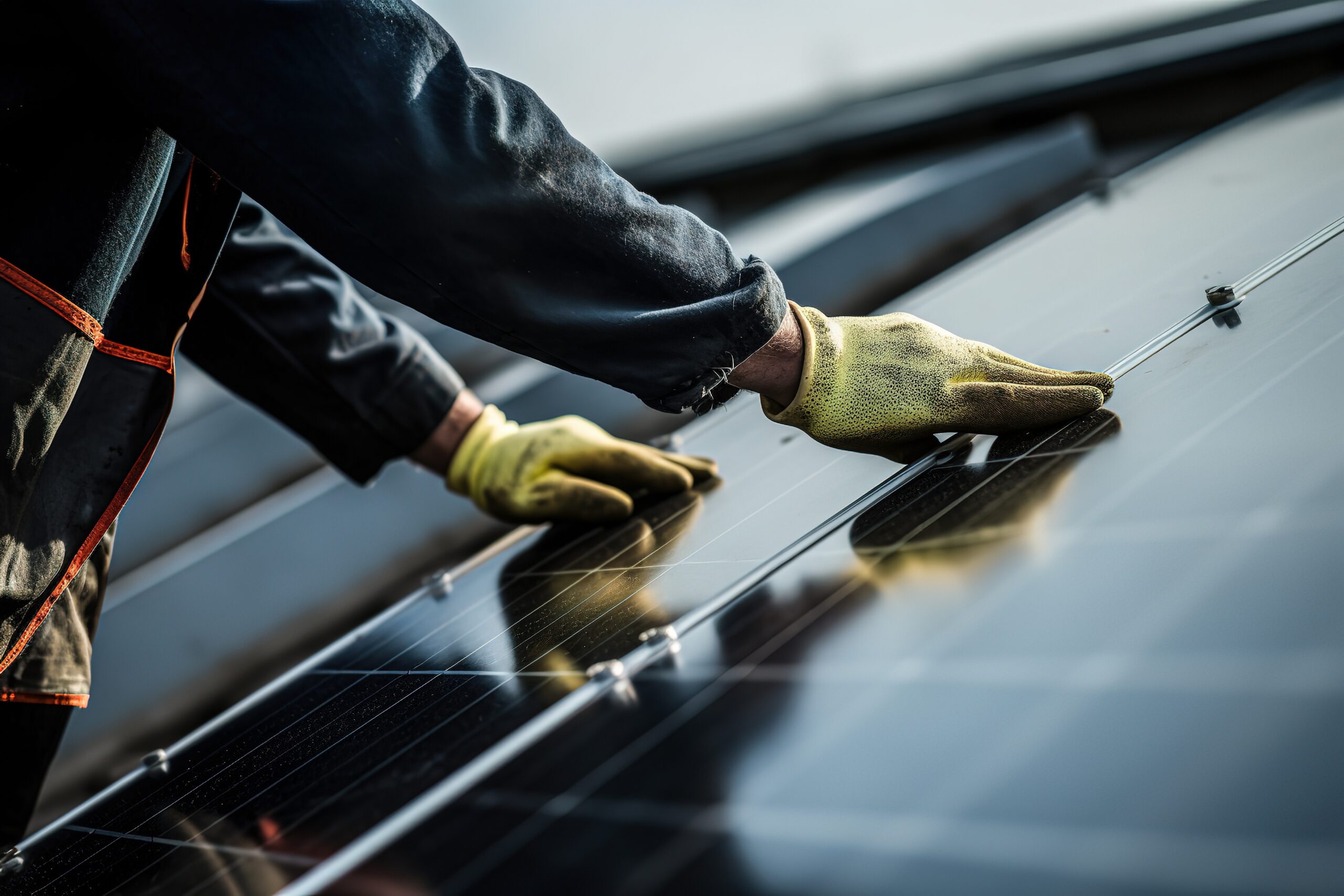
Return on Investment (ROI) Calculations
To calculate the ROI of a solar panel system, you’ll need to consider the following factors:
- Initial Investment: This includes the cost of the solar panels, inverter, installation, and any additional equipment.
- Annual Energy Production: Estimate the amount of electricity your solar system will generate based on your location and system size.
- Energy Savings: Calculate the reduction in your electricity bills due to solar energy.
- Incentives and Tax Credits: Factor in any government incentives or tax credits that may apply.
- System Lifespan and Maintenance Costs: Consider the expected lifespan of the system and any ongoing maintenance costs.
Choosing the Right Solar Panel System
When selecting a solar panel system, consider the following factors:
- Energy Needs: Assess your business’s current and future energy consumption to determine the appropriate system size.
- Roof Orientation and Shading: The orientation and shading of your roof will impact the system’s performance.
- Local Solar Incentives: Take advantage of any available government incentives or rebates.
- Financing Options: Explore different financing options to find the best fit for your budget.
- System Efficiency: Choose high-efficiency solar panels and inverters to maximize sustainable energy production.
- Reliable Installer: Select a reputable solar installer with experience in commercial projects.
Sizing Your Solar Panel System
Properly sizing your solar panel system is crucial to maximize its benefits. Consider the following factors:
- Peak Demand: Identify the times of day when your business’s energy usage is highest.
- Energy Consumption Patterns: Analyze your historical energy consumption data to identify trends and seasonal variations.
- Local Solar Irradiance: Assess the amount of sunlight your location receives throughout the year.
- System Efficiency: Factor in the efficiency of your solar panels and inverter.
- Future Growth: Consider any potential future expansion or increased energy needs.
Maintenance and Care of Solar Panels
Proper maintenance is essential to ensure the optimal performance and longevity of your solar panel system. Here are some tips:
- Regular Cleaning: Remove dirt, debris, and bird droppings from your solar panels to maximize energy production.
- Visual Inspections: Periodically inspect your solar panels for any signs of damage, such as cracks or loose connections.
- Monitor System Performance: Use a solar monitoring system to track your system’s energy production and identify any potential issues.
- Professional Maintenance: Schedule regular professional maintenance to ensure your system is operating efficiently.
- Address Issues Promptly: If you notice any problems with your solar panels, address them promptly to avoid further damage.
How to Clean Solar Panels
Here’s a simple method for cleaning your solar panels:
- Hose Down: Gently rinse the panels with a hose to remove loose dirt and debris.
- Soft Brush: Use a soft-bristled brush to scrub away any stubborn dirt or grime.
- Clean Water: Rinse the panels again with clean water to remove any cleaning solution.
- Avoid Harsh Chemicals: Avoid using harsh chemicals or abrasive cleaners that could damage the panel surface.
Frequently Asked Questions
How long does a solar panel system typically last?
Solar panels can last 25-30 years or more with proper maintenance.
How long does a solar panel installation typically take?
Installation time varies based on system size and complexity, but it usually takes a few days.
What businesses must use solar panels?
No specific type of business is required to use solar panels. However, many businesses, especially those with high energy consumption and a strong commitment to sustainability, are adopting solar energy to reduce costs and environmental impact.
What type of houses can use solar panels?
Most houses can use solar panels, regardless of their size, style, or location. The primary requirement is a suitable roof area with adequate sunlight exposure. Factors like roof orientation, pitch, and shading can influence system performance.
How do solar panels work in areas with mostly rainy and moist weather?
While they function best in direct sunlight, solar panels are designed to harness both direct and indirect sunlight. Even on overcast days or during light rain, the panels can still capture enough light to generate electricity.
GALLERY

